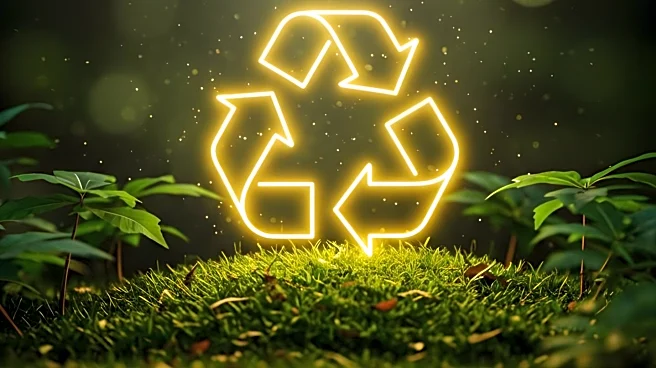What's Happening?
The article provides a comprehensive guide on how individuals can adopt a more sustainable lifestyle. It emphasizes the importance of reducing plastic waste by using reusable bags, bottles, and avoiding
products packaged in plastic. The article also highlights the benefits of buying organic food to reduce one's carbon footprint and support environmentally friendly food production. Additionally, it encourages educating oneself and others about sustainability and advocating for a more sustainable world. The article suggests switching to renewable energy sources to improve public health and reduce environmental impact. It also advises using items for their full life instead of upgrading and avoiding impulse buying by delaying purchases.
Why It's Important?
Adopting sustainable practices is crucial for mitigating the effects of climate change and preserving the environment for future generations. By reducing plastic waste and supporting organic food production, individuals can significantly decrease their carbon footprint. Educating oneself and others about sustainability can lead to more informed decisions that benefit the environment. Switching to renewable energy sources not only reduces environmental impact but also improves public health by decreasing pollution. These actions collectively contribute to a more sustainable world, ensuring that natural resources are preserved and ecosystems are protected.
What's Next?
Individuals are encouraged to continue exploring ways to integrate sustainability into their daily lives. This includes staying informed about new sustainable practices and technologies, participating in community initiatives, and advocating for policies that support environmental conservation. As more people adopt sustainable habits, there is potential for significant positive change at both local and global levels. Continued efforts in education and advocacy can lead to broader societal shifts towards sustainability.
Beyond the Headlines
The article touches on the ethical and social dimensions of sustainability, emphasizing the importance of fair trade and socially responsible consumption. It highlights the interconnectedness of environmental, social, and economic factors in achieving sustainability. By considering the broader implications of their choices, individuals can contribute to a more equitable and sustainable world.









